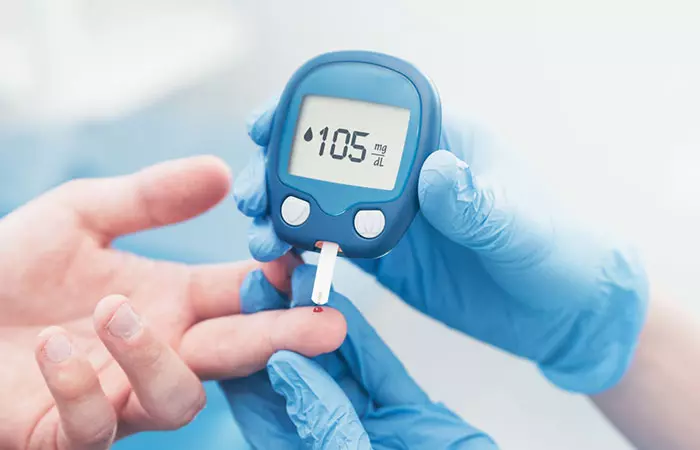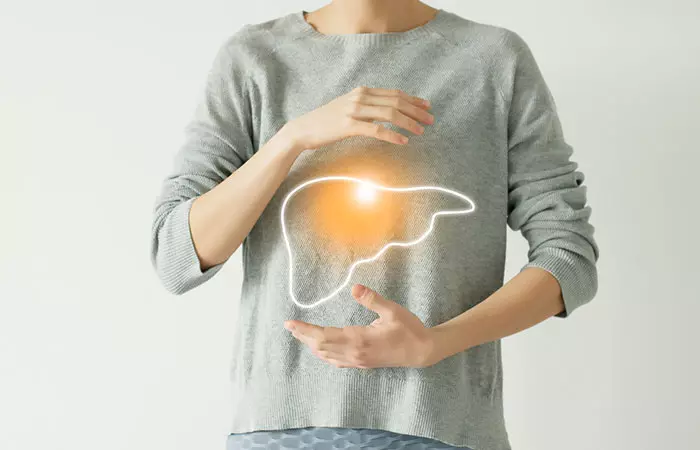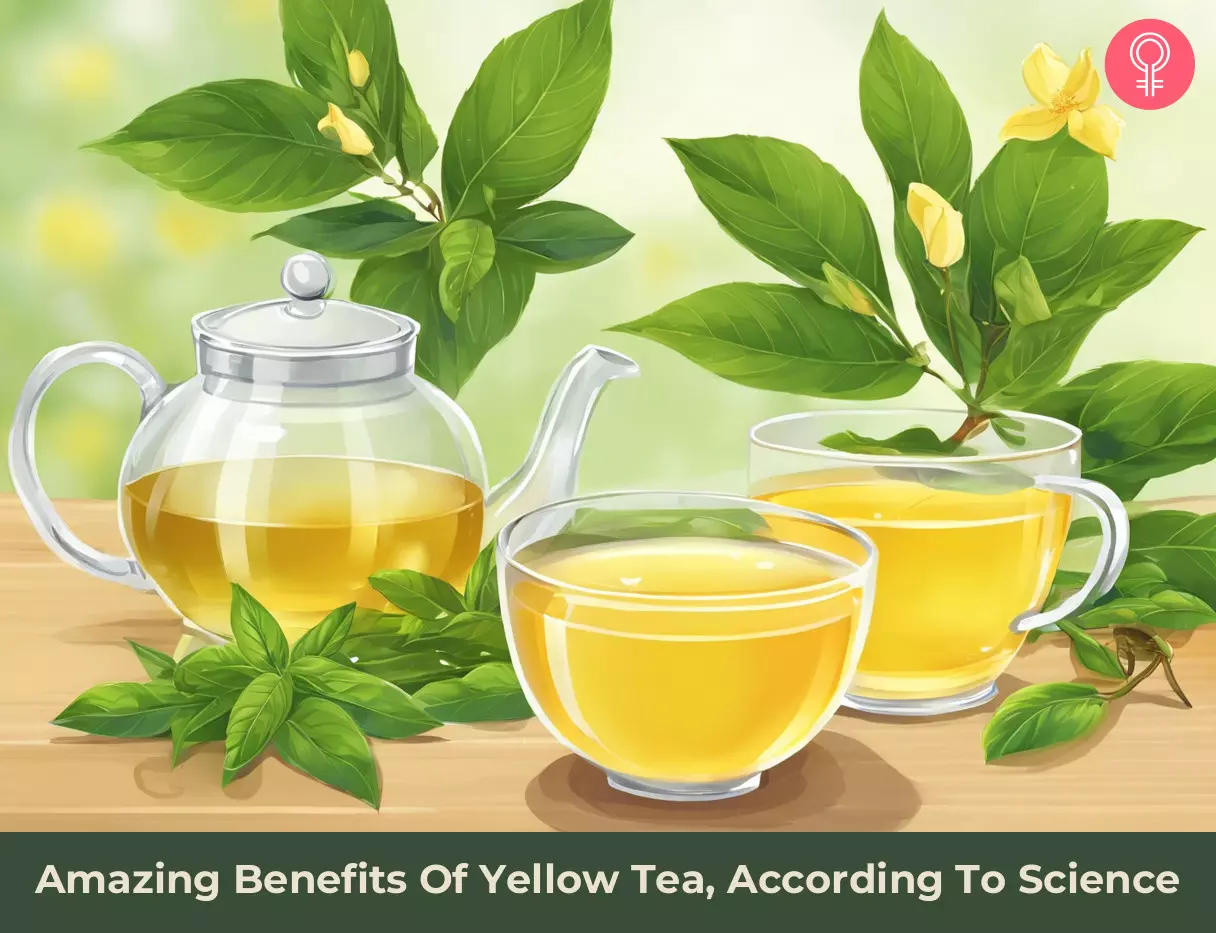What Is Yellow Tea?
Yellow tea comes from the processed leaves of the plant Camellia sinensis. Its process of preparation is similar to that of green tea – with an additional step of encasing and steaming the beverage. This results in a smoother taste than other teas. What Are Its Benefits? It has anti-cancer properties and antioxidants that improve digestion and delay aging. It also helps reduce inflammation and regulates blood sugar levels. Who Can Use It? Anyone as long as they are not allergic. How Often? One can drink up to 3 to 4 glasses every day. Caution Pregnant women should avoid, or consume it only after consulting a doctor. Overconsumption may cause nausea, headache, dizziness, or heartburn.
The primary aim of making yellow tea is to remove the grassy smell of green tea while preserving the health properties. Yellow tea is available in different varieties, the most popular ones being:
Junshan yinzhen Huoshan huangya Beigang maojian Da ye qing Haimagong cha
Phil, a YouTuber, details the preparation of yellow tea. He relishes the aroma after pouring warm water into the yellow tea leaves and adds, “This is a great profile. The roasting really pops and you get hints of dark chocolate, almost a coffee bean-like aroma (i).” He further says, “This tea is great with sweets. We do often have an after-supper with a cheesecake or with a citrusy dessert. It is a fantastic after-supper tea.” You can pick any of the varieties. All of these contain polyphenols and other important compounds that promote health and wellness by combating oxidative stress and enhancing antioxidant defense. Let’s look at the benefits in detail.
How Can Yellow Tea Benefit You?
The polyphenols in yellow tea fight oxidative stress and protect you from heart disease and cancer . Specific polyphenols can also promote improved blood sugar control and may help diabetes. These are the most important compounds of yellow tea – and they are the reason you should have it every day.
1. Promotes Heart Health
Yellow tea, like almost all tea varieties, contains polyphenols. Polyphenols offer protection against cardiovascular disease. They also boost the antioxidant defense of the endothelial cells, which further promotes heart health (1). Polyphenols also exhibit anti-inflammatory properties that enhance heart health and prevent inflammation-related heart ailments (like coronary heart disease and myocardial infarctioni Also known as a heart attack, a fatal restriction in the blood supply to the heart muscles. ) (2). Another important set of compounds in yellow tea are flavanols, which help lower bad cholesterol levels (3).
2. May Prevent Cancer
Yellow tea contains many bioactive compounds that contribute to its anticancer effects. These compounds fight oxidation and inflammation, thereby cutting down cancer risk (4). The polyphenols in the tea can also exert protective effects against cancer (5). These compounds not only act as antioxidants but also positively influence various cellular mechanisms.
3. Aids Diabetes Treatment
Supplementing with yellow tea was found to ameliorate symptoms associated with type 2 diabetes (6). Most of the beneficial effects of the tea can be attributed to its polyphenols. The major type of polyphenols in the tea are catechins – EGCG (epigallocatechin gallate) being the most important of them. This catechin was found to help combat obesity and metabolic syndrome in mice studies (7). Polyphenols can also influence blood glucose levels and control (or even prevent) diabetes complications (8).
4. Promotes Digestive Health
Yellow tea polyphenols also play a role in treating many gastrointestinal issues. Some such ailments include inflammatory bowel diseasei A spectrum of illnesses that lead to gastrointestinal pain and swelling from chronic inflammation. , acute diarrhea, peptic ulcersi A sore on the lining of the upper gastrointestinal tract due to viral infection or certain medications. , and cancers of the digestive tract (9). Yellow tea antioxidants also help treat gastric injury caused by inflammation (10).
5. Can Aid Weight Loss
Yellow tea extracts (along with those of green tea) were found to reduce body weight gain and decrease body mass index significantly. The extracts can also increase satiety and energy expenditure during mealtime in obese individuals (6). In another study, polyphenol intake was inversely associated with body weight and obesity in an elderly population. A greater polyphenol intake can reduce body weight and even cut down the risk of heart disease in the elderly (11).
6. Enhances Liver Health
Yellow tea might prevent the formation of fatty liver. Research also shows that a polyphenol-rich diet can be considered a potential new approach for treating non-alcoholic fatty liver disease (12). Rodent studies have revealed that polyphenols can reduce the metabolism of fat in the liver – thereby helping treat non-alcoholic fatty liver disease (13).
7. Helps Delay Aging
The polyphenols in yellow tea can offer benefits with respect to aging as well. Polyphenols derived from the leaves of the Camellia sinensis plant are believed to protect the human skin from the signs of photoaging (14). In many animal models, tea polyphenols were also found to inhibit UV-induced skin damage (14). Other studies have also recognized the photoprotective properties of tea polyphenols – especially those coming from the leaves of Camellia sinensis (15). The tea polyphenols also combat oxidative stress, which is another major contributor to skin aging (16).
How To Prepare Yellow Tea At Home
Brewing yellow tea is similar to that of most other teas. Make sure you use filtered water in the process.
A teapot A teacup 1 teaspoon of loose yellow tea leaves A kettle
A steaming cup of yellow tea may sound delicious, but does it have any adverse effects?
Side Effects Of Yellow Tea
Although yellow tea is considered safe, it may lead to side effects if taken in excess.
Yellow tea contains caffeine and having too much of it may cause caffeine toxicity. The symptoms include anxiety, sleep disorders, or cardiovascular problems (17). Drinking excess tea can be harmful to those with iron deficiency. Tea contains tannins that may inhibit iron absorption (18). Having tea on an empty stomach may irritate the stomach lining (19). Yellow tea may cause tooth staining if one consumes it way too often without following proper oral hygiene. Those with tea sensitivity may experience allergic reactions like skin irritation, hives, itching, etc.
Which is better: yellow tea or green tea? Yellow tea is better than green tea. It has increased antioxidant activity and contains higher phenolic content than green tea (20), (21). So, even though green tea benefits are impressive, yellow tea offers superior health benefits. What is the best time to drink yellow tea? Drinking yellow tea in the afternoon is ideal. It may also help improve the immune system. How much caffeine does yellow tea have? One cup of yellow tea has 63 mg of caffeine. Why is yellow tea rare? Making yellow tea is time-consuming and requires expertise to achieve the right level of fermentation. In addition, it involves a multiple-day wrapping and steaming process.
Illustration: Amazing Benefits Of Yellow Tea According To Science
Discover the amazing health benefits of drinking yellow tea. Click on this video to learn how this delicious tea can help improve your overall health and well-being.












